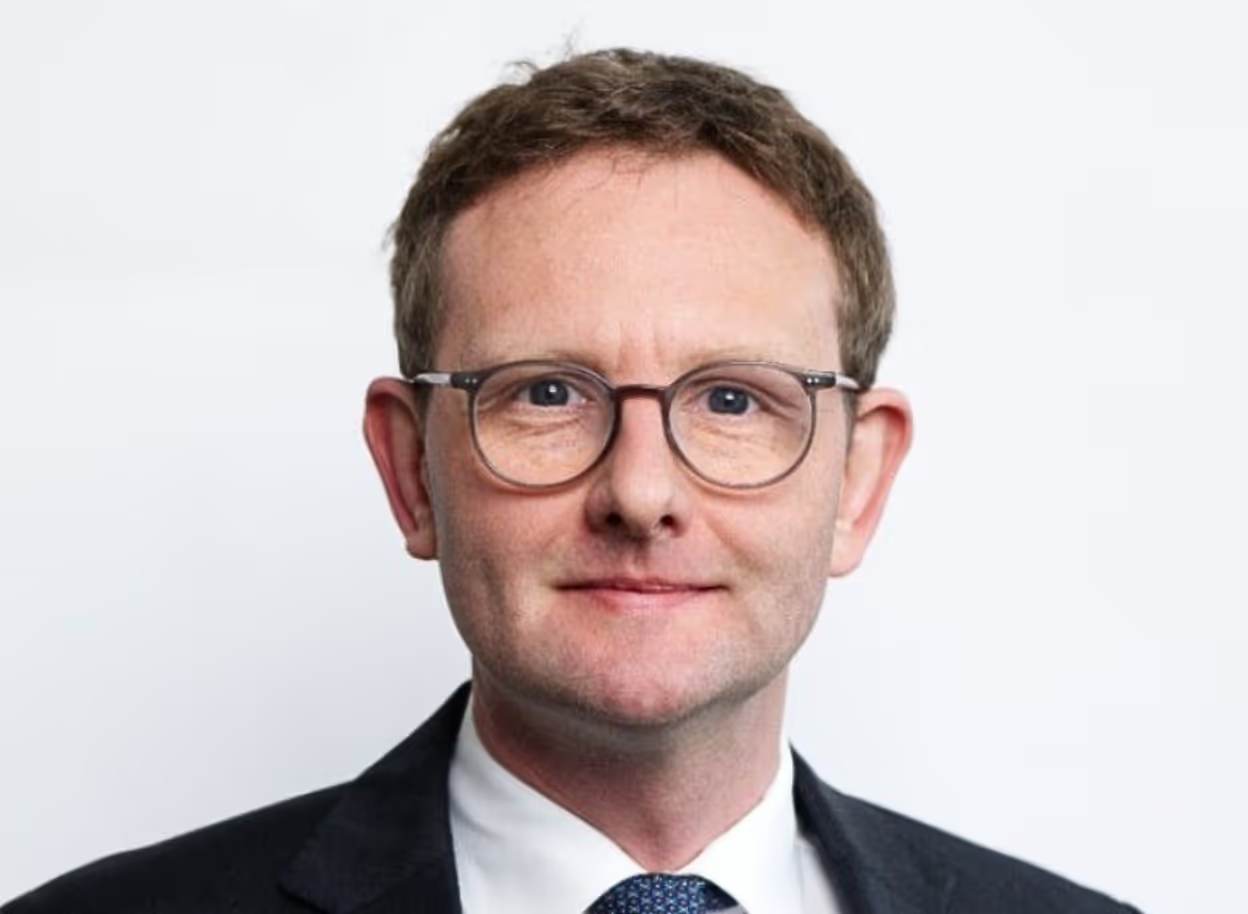Latest update on June 18, 2024
In this interview series, we talk to sustainability heroes about the sustainability transformation in companies and the exchange of sustainability information. We find out everything about what drives them in their role, how they deal with ESG data and what factors they consider to be an efficient exchange of sustainability data.
Maximilian Müller is a Professor of Financial Accounting at the University of Cologne. Before joining the University of Cologne, he was a faculty member at WHU — Otto Beisheim School of Management and ESMT Berlin and a visiting scholar at the University of Chicago. In 2022, he founded the Sustainability Reporting Navigator, an open-science platform that makes reporting practices, requirements, and stakeholder preferences transparent and comparable. The platform is jointly hosted and developed by Goethe University, the University of Cologne, and LMU Munich.
Maximilian Müller joined Sunhat as an advisor in February 2024 to support our team with valuable knowledge and contributions regarding sustainability requirements as well as assessment and reporting compliance.
Technology as a Lever for True Sustainability
Can you tell us a little bit more about you?
What motivated you to join as an advisor at Sunhat?
I joined Sunhat because I love how they use technology to ease the reporting burden on companies. There is a trade-off between reporting and action: do you invest resources to fill out the next questionnaire on your carbon footprint, or do you use resources to reduce the carbon footprint? Sunhat allows companies to spend more time on action rather than reporting by simplifying their responding to data requests.
From a research perspective, there is a major black box that my work with Sunhat helps to illuminate: how does the demand for sustainability data look like and differ across stakeholders? Policymakers often claim that stakeholders demand more and better sustainability data, but we have little systematic evidence on their actual demands. Do sustainability data requests by suppliers differ from those of banks in a fundamental way or do they target similar concepts with a slightly different wording?
Mapping out similarities and differences in data requests across stakeholders with the help of AI like Sunhat does allows companies to more efficiently respond to requests - and design data infrastructures and policies that match these requests.
ESG Inquiries: Between Complexity and Lack of Infrastructure
Why do you think many businesses still find managing sustainability requests and sustainability data challenging?
Most requests are still handled on a case-by-case basis — and companies don’t yet have the “big picture” across these ESG requests to see similarities and reap synergies in responding to requests.
In addition, while much of the relevant data exists somewhere in a company, there is often not yet an infrastructure that would collect these similarly as ERP systems do for financial data. But even these systems would not yet collect data relating to the value chain, which is typically asked for and represents a major challenge for companies.
Finally, there is clearly also a lack of standardization or convergence in the reporting frameworks and ESG ratings that operationalize the measurement of sustainability in different ways.
Uniform Standards as a Basis for Progress
In your lectures at the University of Cologne, you touch upon subjects such as the new European Sustainability Reporting Standards (ESRS).
How do you see the ESRS contributing to sustainability reporting?
ESRS is the first mandatory sustainability reporting regulation that standardizes the measurement of datapoints and disclosures for many sustainability topics. This might lead some stakeholders to adapt their requests and lead to some convergence — but we need to bear in mind that it is an EU regulation only and while there is some overlap between the datapoints targeted by ESRS and the ones that for example ESG ratings collect, there are still major differences because sustainability is just such a broad concept.

But it is clear that the standardization will create more of a level playing field within the EU — and that will allow for better benchmarking and probably also learning across firms. More comparable and audited sustainability data might also empower policymakers to take other regulatory actions that are more effective than transparency alone in reducing environmental externalities or the abuse of market power.
The Potential and Future of AI in Sustainability Reporting
What role can cutting-edge technology, such as artificial intelligence or data analytics, play in addressing sustainability challenges?
I hope that technology will help companies become more sustainable. This might be by saving time in reporting or collecting data like Sunhat does — but also by providing companies with a better understanding of their own sustainability, areas for improving it, and their stakeholders’ expectations.
Once the sustainability data infrastructure is set up, I also hope that we will see technology being used to trace out how sustainability and financial data relate to each other to identify true KPIs and handle trade-offs between the financial and sustainability dimension more efficiently.
We can also expect that stakeholders will make more use of technology to analyze the sustainability profile of companies. We are already experimenting with large language models to collect qualitative and quantitative data from sustainability reports with some promising results. If companies understand this and adapt their messaging to these changes, then the message they are sending might be better heard — allowing for a better matching between companies that are sustainable and stakeholders looking to interact with sustainable companies.
In the more distant future, once we have overcome “language barriers” in the sustainability landscape, we might see automated and authorized information exchange between stakeholders and companies through the use of technologies like blockchain.
Thinking Holistically About Sustainability — Including Its Implementation
What practical advice can you give to companies that have to implement sustainability requirements?
As a professor, I am a bit reluctant to provide practical advice. But I would say that they should try to synchronize the major “compliance request” they are currently facing, the CSRD mandate to prepare a sustainability statement under ESRS, with the requests that they get through their business interactions with stakeholders.
The types of topics and data points they are asked for by many of their stakeholders provide the best evidence that an issue is material and warrants reporting. Using Sunhat will help companies greatly to identify these request overlaps across stakeholders and with CSRD and collect only relevant data.
Thank you for sharing your insightful perspective!
Stop scrambling. Start proving.
Your next customer questionnaire, assessment, or audit doesn't have to be a fire drill. Get the platform that keeps proof ready for every request.

The Sustainability Reporting Navigator is an open-science platform designed to make sustainability reporting accessible to companies and stakeholders. It is part of the Collaborative Research Center TRR 266 Accounting for Transparency and is collaboratively hosted and developed by Goethe University, the University of Cologne, and LMU Munich, with support from TRR 266 (Accounting for Transparency; funded by the Deutsche Forschungsgemeinschaft, Project-ID 403041268).
As Prof. Dr. Maximilian Müller stated, ESG software can help companies by "saving time in reporting or collecting data".
Check out the LinkedIn Profile from Prof. Dr. Maximilian Müller to get updates on his ESG research results.






.avif)


%201.svg)






